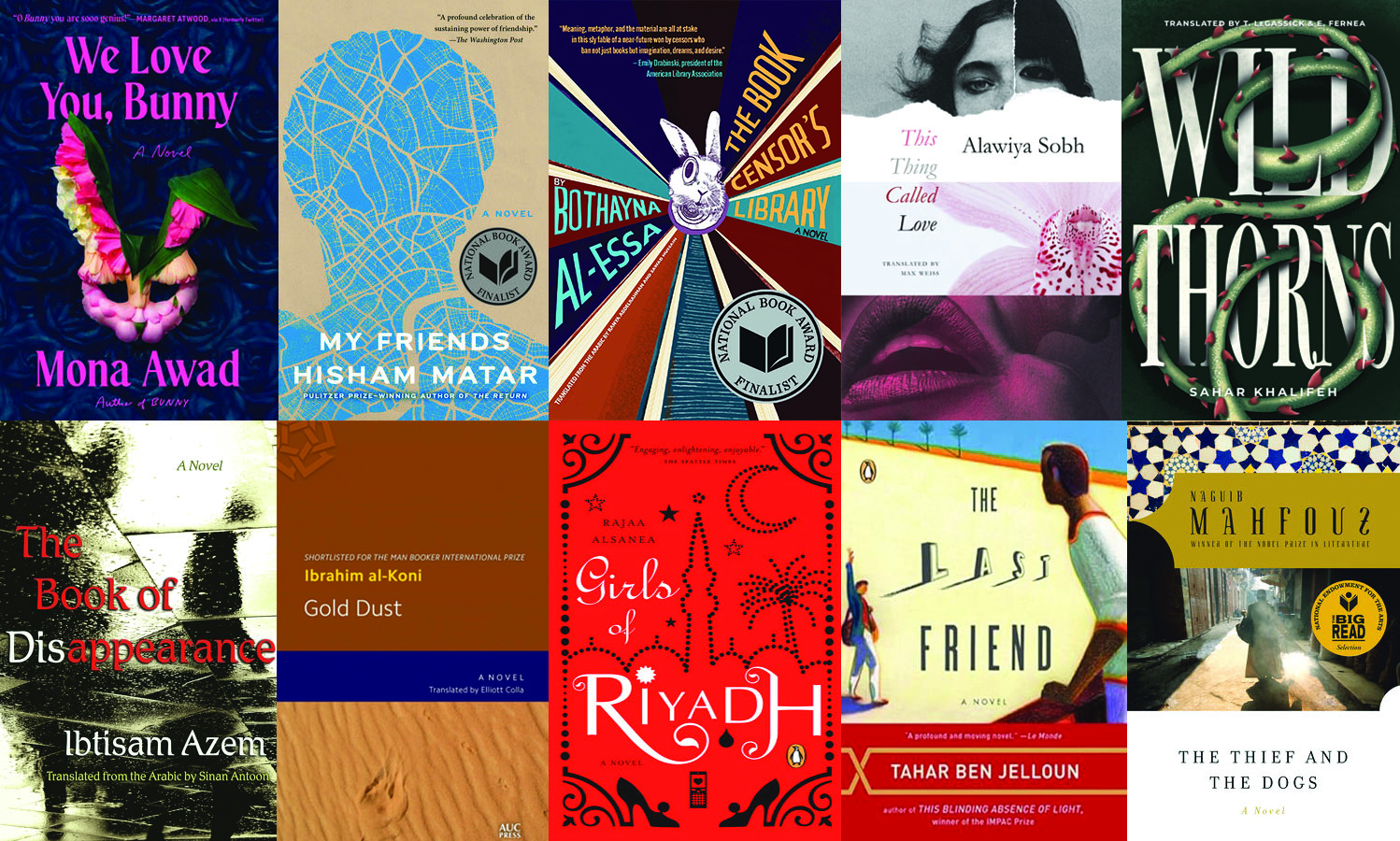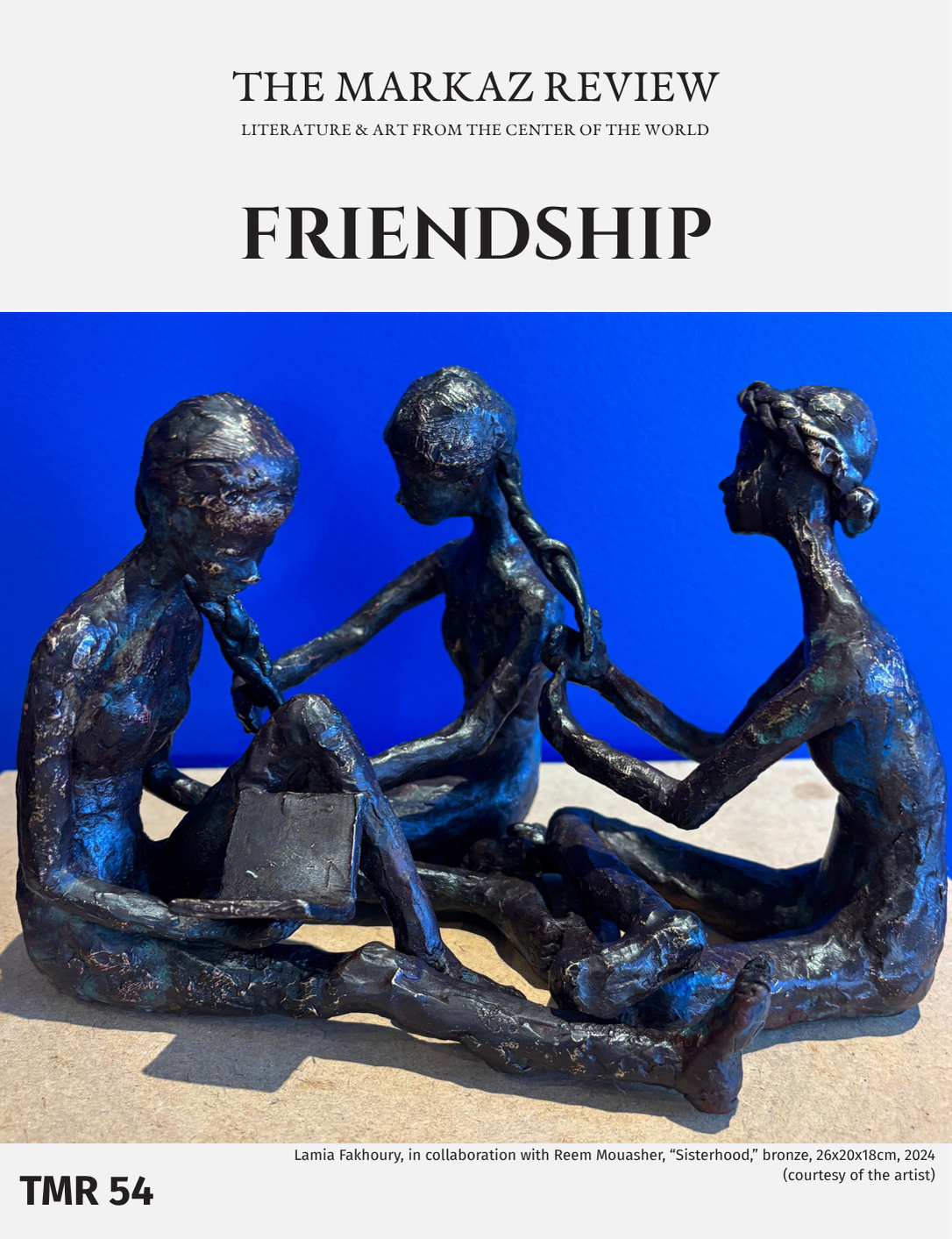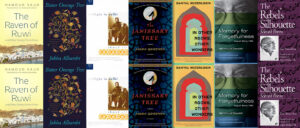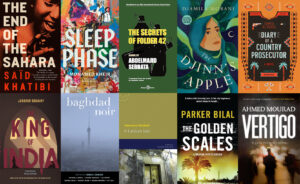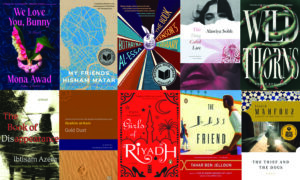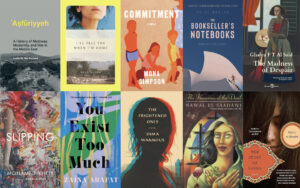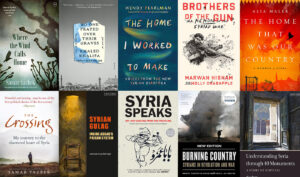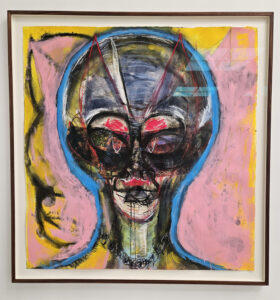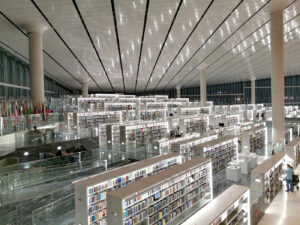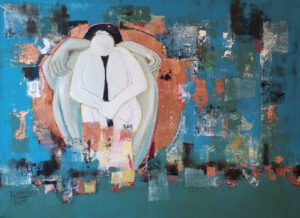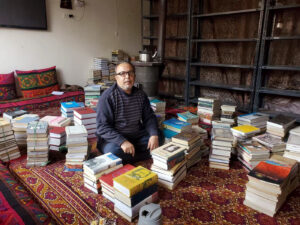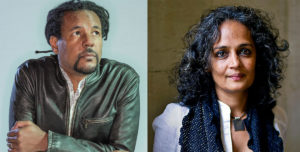Friendship has long been a quiet yet powerful current in Arabic literature — a bond that weaves through stories of exile, war, love, and resistance, often carrying emotional weight equal to, or greater than, romantic or familial ties. The novels in this list explore friendship in its many forms: tender, tumultuous, redemptive, and complex. Each work reveals how friendship can shape identity, reflect cultural shifts, and endure even the most challenging circumstances.
 We Love you Bunny by Mona Awad, Simon & Schuster, 2025
We Love you Bunny by Mona Awad, Simon & Schuster, 2025
Longlisted for the 2025 Giller Prize, the novel by the Arab American author explores a twisted and complex take on friendship within a prestigious MFA program, focusing on a group of privileged students called the “Bunnies.” An outsider is welcomed into their unsettling, cult-like clique. The narrative examines themes of belonging, creative writing, and the transformative, sometimes horrific nature of friendly connections.
My Friends by Hisham Matar, Random House, 2024
The novel, longlisted for the 2025 Booker prize and winner of the Orwell Prize for Political Fiction, is rooted in themes of surveillance and exile during the Gaddafi era. It delves into the friendship of three Libyan men — Khaled, Mustafa, and Hosam — who find themselves living in London. As they navigate the challenges of distance and the oppressive Libyan regime, their bond is put to the test, highlighting how political turmoil often overshadows personal connections.
The Book Censor’s Library by Bothayna Al-Essa, trans. by Ranya Abdelrahman & Sawad Hussain, Restless Books, 2024
The narrator works for a government bureau censoring books. By day, he reviews manuscripts to approve or ban them. But by night he becomes increasingly drawn to forbidden literature, hoards banned books, dreams of the characters in literary classics and risks his safety to preserve books. It’s very much about a deep, almost passionate love-friendship with books.
This Thing Called Love by Alawiya Sobh, trans. by Max Weiss, Seagull, 2023
In this novel, a tight-knit group of friends faces the ups and downs of life together. As tensions rise just before the outbreak of the 2006 war in Lebanon, one member of their circle, Nahla, suddenly goes missing. Her friends—Suad, Azizeh, Hoda, Nadine, and the narrator, Alawiya—join forces in a heartfelt quest to find her. Set against the backdrop of the conflict between Israel and Hezbollah, this poignant story delves into themes of love, loss, friendship among women, and the universal struggle to come to terms with mortality.
Wild Thorns by Sahar Khalifeh, trans. by Trevor LeGassick & Elizabeth W. Fernea, Interlink Books, 2003
Written in Arabic and first published in Jerusalem in 1976, Wild Thorns, with its panorama of characters and unsentimental portrayals of everyday life, is the first Arab novel to give a true picture of social and personal relations under occupation. One of the main characters, Usama, returns to Palestine from abroad with aspirations tied to the resistance. He becomes disillusioned by what he sees in daily life regarding how friends, cousins, collaborators, and fighters accommodate or accept life under occupation, ultimately leading to fractured friendships due to differences in resistance strategies.
The Book of Disappearance by Ibtisam Azem, trans. by Sinan Antoon, Syracuse University Press, 2019
What if all the Palestinians in Israel simply vanished? What would happen next? How would the Israelis react? These provocative questions are at the heart of Azem’s powerfully imaginative novel, which is set in contemporary Tel Aviv, just forty-eight hours after Israelis discover that all their Palestinian neighbors have disappeared. Although the book explores both the pain of loss and the fading memories of the Palestinians, one of the angles it delves into is the friendship between neighbors (Palestinian Alaa Assaf and Israeli Ariel Levy) highlighting how diaries and memories sustain human connection.
Gold Dust by Ibrahim al-Koni, trans. by Elliott Colla, AUC Press, 2015
Gold Dust is a timeless (though antiquated) novel that explores the profound bond between humans and animals, highlighting the essential companionship that can mean the difference between life and death in the harsh realities of the desert. At the heart of the story is Ukhayyad, a young protagonist whose journey of self-discovery unfolds alongside his loyal Mahri camel. Author Ibrahim al-Koni, born in the Sahara, calls together his familiar corners of the vast area—Kano, Timbuktu, Tamarasset, Adrar, Hamada, Ghadames, among others all along the salt routes. The novel invokes Sufism, pre-Islamic cultures and details their lingering power set against a scramble for power with incursions from the French and Italians.
Girls of Riyadh by Rajaa Alsanea, trans. by Marilyn Booth, Penguin Books, 2008
Originally released in Lebanon in Arabic in 2005, Girls of Riyadh was not officially banned in Saudi Arabia but its publishing was met with resistance due to perceived controversial and non-conservative content by a female author. The novel, written in the form of emails, follows four young Saudi women — Lamees, Gamrah, Michelle (half-Saudi, half-American), and Sadeem — and explores their friendships, romantic lives, and hopes and disappointments, as they navigate the constraints of conservative society vs their own desires.
The Last Friend by Tahar Ben Jelloun, trans. by Kevin Michel Capé & Hazel Rowley, trans. by Linda Coverdale, New Press, 2006
This novel explores the enduring thirty-year friendship between two teenagers, Mamed and Ali, as they navigate their quest for identity and sexual fulfilment. Against the backdrop of 1950s Moroccan society, which merges modernity with tradition, their journey unfolds in a landscape riddled with contrasts. Their bond experiences various phases: the innocence of youth, the rigors of schooling, the fervor of political activism, brutal imprisonment, career changes, and marriage. Along the way, an unspoken jealousy simmers beneath the surface, posing a threat to their relationship and challenging their connection. Set against a backdrop of repression and disillusionment, The Last Friend is a tale of loss of innocence and a nation’s coming of age.
The Thief and the Dogs by Naguib Mahfouz, Anchor, 1989
In this dark psychological novel, a betrayed ex-convict embarks on a quest for revenge against his former friend, the one who turned him in to the police. Fueled by a burning rage, the protagonist finds himself consumed by thoughts of retribution. This powerful narrative delves deep into the themes of friendship gone awry, betrayal, and disillusionment. It’s a gripping and tragic exploration of how trust can erode, spiraling into obsession and violence. The novel, published in 1961 in Arabic, captures Said’s deep sense of despair, highlighting his disappointment with the revolution and the new order in Egypt. Said embodies not just a thief but also a disillusioned revolutionary, grappling with the harsh realities of his ideals.



